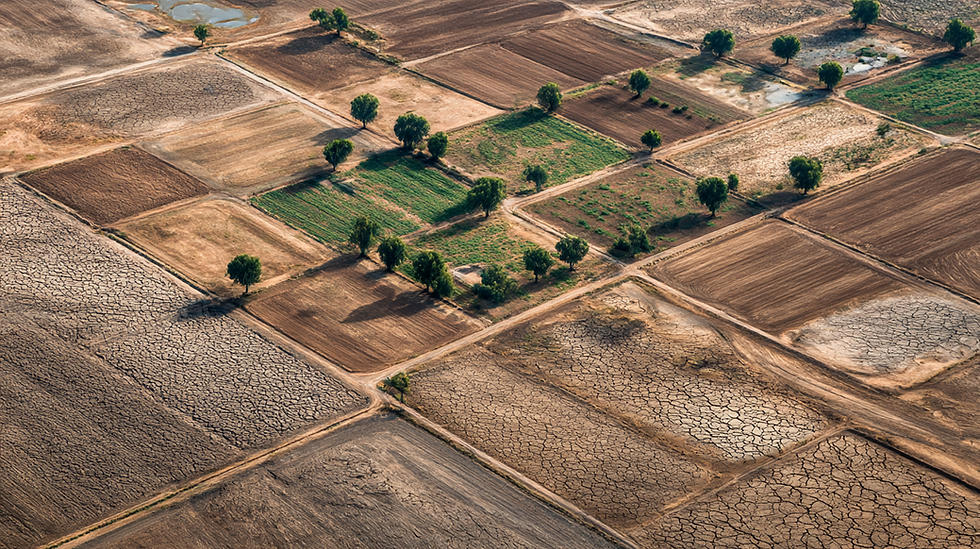UK Food Industry Faces £2.6bn Hit Without Climate Action
- gillmcshane
- Oct 1
- 3 min read
A pioneering climate risk model launched by IGD reveals that the UK will be exposed to £2.6bn in additional food costs if current practices continue, driven by inflation and volatility, with imported horticulture facing the greatest risk.

The findings support the business case for accelerated progress towards net zero, according to IGD (Institute of Grocery Distribution), with immediate action urged from business and government in order to protect UK food security to 2050.
The analysis validates the growth opportunity for UK horticulture; indicating that imported of fruits and vegetables face the biggest threat from climate change, particularly citrus, bananas, and tomatoes.
Supply from new sources is needed to reduce the reliance on imports, IGD said, especially as UK diets shift towards increased fruit and vegetable consumption.
Climate change is the greatest threat to the UK food system, with the unprecedented challenges facing the sector only set to intensify in the years ahead, according to IGD. Developing a clear understanding of exposure is essential therefore to improve decision making.
To that end, IGD developed its ground-breaking model with consultants EY to support business leaders and policymakers to quantify the financial impact of physical climate risks on the UK food system up to 2050.
The model considers four chronic climate risks: temperature, water stress, pollinator loss, and soil erosion; and delves into three varying climate scenarios: Net Zero, Delayed Progress to Net Zero and Business as Usual.
The analysis evaluates how these pathways may influence the productivity and costs of ten critical commodities that underpin the UK’s food security: bananas, barley, citrus, milk, potatoes, soy, sunflowers, tomatoes, wheat, and white fish.
Five Key Findings:
£2.6bn financial impact from Business as Usual. Maintaining Business as Usual exposes the UK to significant inflation, with additional costs of £2.6bn, equivalent to over 5.9% of annual food commodity costs. This further informs the business case for progressing to net zero, at pace.
Imported horticulture is greatest risk. The UK is heavily dependent on imports of fruit and vegetables and these commodities are most vulnerable to climate change. Citrus, banana, and tomato face the greatest risk.
Dietary shift with current sourcing could bring risk. Transitioning to healthy and sustainable diets can offset some risks, but increased fruit and vegetable consumption from current supply sources adds risk to an already vulnerable category.
Supply from new provenances needed. The largest import-related cost risk comes from Spain, a key sourcing region. Future sourcing and investment strategies must be developed to mitigate risk and over-reliance on exposed regions. This validates the growth opportunity for UK horticulture.
Domestic capacity must be maintained. Progress to net zero would make UK production more competitive as it benefits from improved growing conditions for wheat. UK productive capacity must be maintained to realise these benefits.
Immediate Action Essential
Climate change is already reshaping the UK food system, with record-breaking heat, persistent flooding and water stress disrupting yields and driving up costs. IGD warns that these unprecedented challenges will intensify in the years ahead.
While the UK was the first nation to set out a Net Zero Transition Plan for its food system, this new climate risk assessment shows that immediate action is essential, IGD adds.
Offering clear, practical insights for everyone involved in the food supply chain, IGD and EY’s climate risk assessment marks an initial step towards building an open-access tool that empowers organisations to identify their exposure and respond effectively to climate-related risks.
Its purpose is to inform decisions on investment, foster collaboration, and shape policy efforts to secure the nation’s food supply through to 2050.
Building resilience is not only vital for the environment but also a commercial necessity, explained Sarah Bradbury, Chief Executive at IGD.
“With growing volatility and scarce resources, ensuring a reliable food supply will provide a key competitive edge,” Bradbury urged. “By collaborating, adapting, and managing risks, the UK can secure a sustainable and robust food future for all. Our climate risk assessment with EY offers clear guidance for businesses to stress-test strategies, concentrate efforts where they matter most, and work with us to achieve a resilient food system.”






Comments